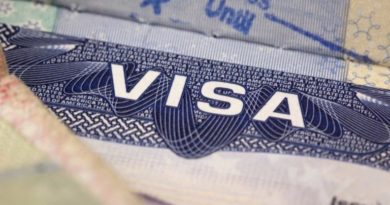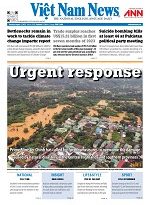North Korea claims it has detonated hydrogen bomb in most powerful nuclear test to date
SEOUL – North Korea claimed Sunday (Sept 3) it has successfully tested a hydrogen bomb that can be loaded into an intercontinental ballistic misile (ICBM), in what is said to be the most powerful nuclear test conducted and a major escalation of tensions.
North Korea’s state-run TV carried an “important” announcement on its sixth nuclear test, calling it a “perfect” success. It came hours after an artificial 6.3-magnitude earthquake was detected near its north-eastern Punggye-ri nuclear test site around 12.30pm local time (11.30am Singapore time).
“The H-bomb test was carried out to examine and confirm the accuracy and credibility of the power control technology, and internal structural design newly introduced into manufacturing the H-bomb to be placed as the payload of the ICBM,” said North Korea’s state-run Korean Central News Agency, which announced earlier in the day that the regime had developed a hydrogen bomb that can be mounted onto an ICBM.
South Korean President Moon Jae In, in an emergency national security meeting, called for the “strongest punishment” against North Korea, adding that Seoul will “never tolerate” advances in Pyongyang’s nuclear and missile programme.
He also urged “all diplomatic measures” including United Nations sanctions to “completely isolate North Korea”, presidential security adviser Chung Eui Yong said in a statement.
Mr Chung also said Seoul would discuss the deployment of the “strongest strategic assets of the US military”, but did not give details.
Japan’s prime minister Shinzo Abe slammed North Korea’s nuclear test as “absolutely unacceptable”, adding that its nuclear and missile programmes now pose a “more grave and urgent” threat to his country.
“The fact that North Korea forced through a nuclear test this time is absolutely unacceptable to our country,” Mr Abe said in a statement.
“North Korea’s nuclear and missile development programme is a threat that is more grave and urgent to the safety of our country and has entered a new stage. It is significantly hurting regional and international peace and stability.”
Japan’s foreign minister Taro Kono told reporters that the Japanese government has lodged a formal protest to the North Korean embassy in Beijing, calling any test “extremely unforgivable”.
China’s Foreign Ministry said the Chinese government resolutely opposes and strongly condemns the nuclear test, which came as China is hosting the annual BRICS Summit involving Brazil, Russia, India, China, South Africa.
The provocation came five days after North Korea escalated tensions by testing a missile that flew 2,700km over Japan and landed in waters off Hokkaido. This marks North Korea’s sixth nuclear test since 2006, including two tests last year.
The regime also tested two ICBMs in July and threatened to strike waters around US territory Guam, in retaliation to US President Donald Trump’s “fire and fury” rhetoric.
The Korea Meteorological Administration said the scale of Sunday’s artificial quake was five to six times that of the fifth test in September last year, which had a yield of 10 kilotonnes and triggered a 5.04-magnitude earthquake.
Parliamentary defence committee chief Kim Young Woo, citing military data, said the latest test is estimated to have a yield of up to 100 kilotonnes.
“The test will be a very crucial political and strategic inflexion point,” the opposition lawmaker told Yonhap news agency, adding that there is a need for the Moon administration to relook its dual-track sanctions-with-dialogue approach towards the North.
Sejong Institute’s senior fellow Cheong Seong Chang urged the South Korean government to lead in efforts to further squeeze the North, like halting oil supplies, and to complete the stalled deployment of a controversial US missile shield which angers China.
“If it is not possible to denuclearise North Korea, it may be necessary to examine if South Korea should acquire nuclear weapons in order to achieve a balance,” he said in a statement.
Calls have been growing within Seoul for the government to seek the redeployment of US tactical nuclear weapons that were withdrawn in the early 1990s, but the presidential Blue House has denied such intentions.
NOTE : All photographs, news, editorials, opinions, information, data, others have been taken from the Internet ..aseanews.net |
[email protected] |











